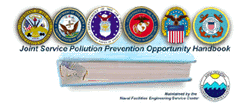|
Bypass filters are designed to remove smaller particulates
than would be removed by an engine's normal filter, so that the need for
additional oil or oil changes can be reduced. High density bypass
filtration extends the useful life of oils. In addition to reducing
waste oil generation, collateral benefits include reduced acquisition of
petroleum-based lubricants, reduced-labor hours in the management of waste
oil, and an extension of engine life through improved lubrication.
Bypass filtration is a system that provides high density,
slow filtration (one to six quarts per minute at engine operating
temperature) of engine oil without affecting the primary OEM filtration
system. Bypass filters also remove solid contaminants down to 3
microns, control moisture content in oil, are compatible with all MIL-SPEC
oils and extend oil drain intervals. Bypass filters are installed in
the engine compartment of a vehicle or, nearby a stationary engine.
The bypass filter is fed a slip stream of oil that bypasses the
engine.
Oil added during filter changing, and to replace burned
oil, is normally sufficient to replenish the oil's additive package (the
component of the oil that is responsible for maintaining pH and preventing
deterioration of the oil).
Installing bypass filters may not be feasible on some
vehicles in a fleet. The climate in which the vehicle is sued, the
duration of engine run time, and the age of the vehicle can all influence
the feasibility of bypass filter use.
In warm climates (where 15W40 is used year round) all
vehicles benefit from the additional filtration because flow through the
filter starts almost immediately. However, in colder climates,
engines need to run at the manufacturer's normal operating temperature for
at least ten minutes to reduce the oil's viscosity and to allow flow
through the bypass filter. Longer run times are necessary in
extremely cold climates.
Several different types of bypass filters are
available. Those manufactured by Gulf Coast and Enviro Filtration
rely on filter elements that remove particles down to the 1 to 10 micron
range. The Gulf Coast unit is distinctive in that it uses a commonly
available roll of toilet paper (or paper towels for larger units) as the
filter element. The TF Purifiner unit filters down to 0.5 to 1.0
micron, and then refines the oil by passing it through a heated element
refiner that is vented back into the engine air intake. The heated
element volatilizes any unburned fuel, water, or glycols that contaminate
the oil and cause the oil's additive package to breakdown. These
systems reduce the need for complete oil changes, but the engine's
conventional canister filter along with the bypass filters still need to
be changed in accordance with manufacturer's recommendations.
Along with filter changes, engine oil must be sampled and
analyzed to determine the physical and chemical properties of the oil (see
data sheet 6-II-3 for Lubricant Analysis Programs). Using a
bypass filter system in conjunction with a lubricant analysis program may
reduce the number of oil changes without decreasing the life expectancy of
engine parts. The use of bypass filters has been approved for use in
Air Force vehicles.
According to Mr. Mike Schleider, Chief Engineer for the
Support Equipment and Vehicle Management Directorate at the Warner Robins
Air Logistics Center, the use of oil bypass filters in Air Force vehicles
has been approved for use once a base has petitioned their MAJCOM for an
exemption from the periodic oil change intervals called out in T.O.
36-1-171. However, if approved, these filters will be required to be
used in conjunction with an oil analysis program. The oil analysis
program is to be used to determine oil change intervals.
| 